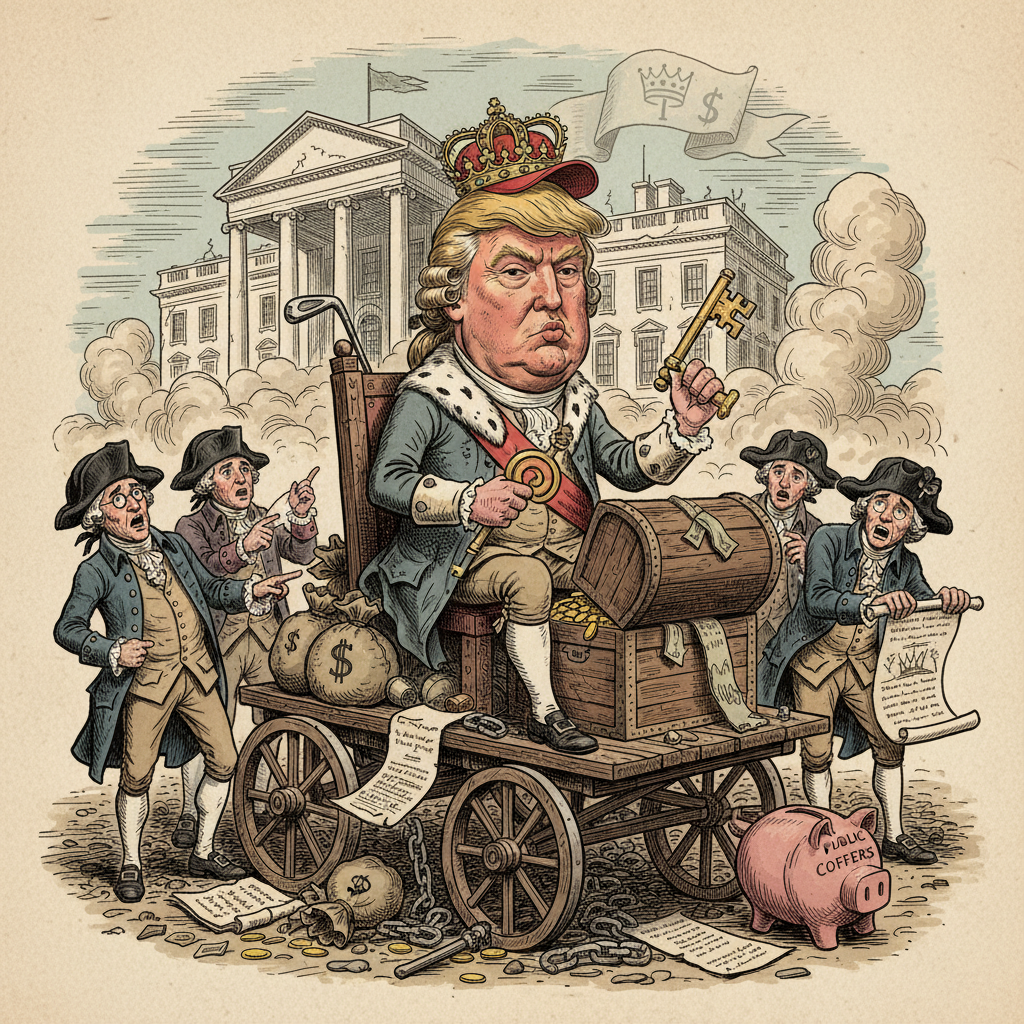President Donald J. Trump's administration faces renewed scrutiny over its use of executive actions to bypass congressional appropriations, raising profound questions about the separation of powers.
Details:
- The Trump administration is reportedly employing various legal interpretations and fund reallocations to maintain government operations amidst looming budgetary impasses.
- These strategies include redirecting unspent funds from existing appropriations and exploring novel mechanisms for public-private partnerships, reminiscent of royal prerogative bypassing colonial assemblies for financial levies.
- Such maneuvers, critics contend, reflect a disturbing willingness to circumvent established legislative processes, echoing the Crown's attempts to assert unilateral control over colonial finances without the consent of their elected representatives.
Why it Matters:
The current administration's creative accounting, while perhaps expedient in the short term, threatens to unravel the delicate balance of powers meticulously established by the Constitution. This bypass of the legislative branch for funding, regardless of intent, echoes the very grievances that ignited the American Revolution. As John Dickinson argued in his influential 'Letters from a Farmer in Pennsylvania,' a free people 'are not to be taught by the law of nature, to render obedience to any laws, not made by themselves.' To view this merely as a partisan skirmish is to miss the fundamental historical resonance. When the executive branch assumes fiscal prerogatives traditionally reserved for the legislature, it is not merely a policy dispute; it is a profound structural shift that, unchecked, risks transforming representative government into something considerably more centralized, and less accountable, to its citizens, much as the colonists feared under an encroaching Parliament.
